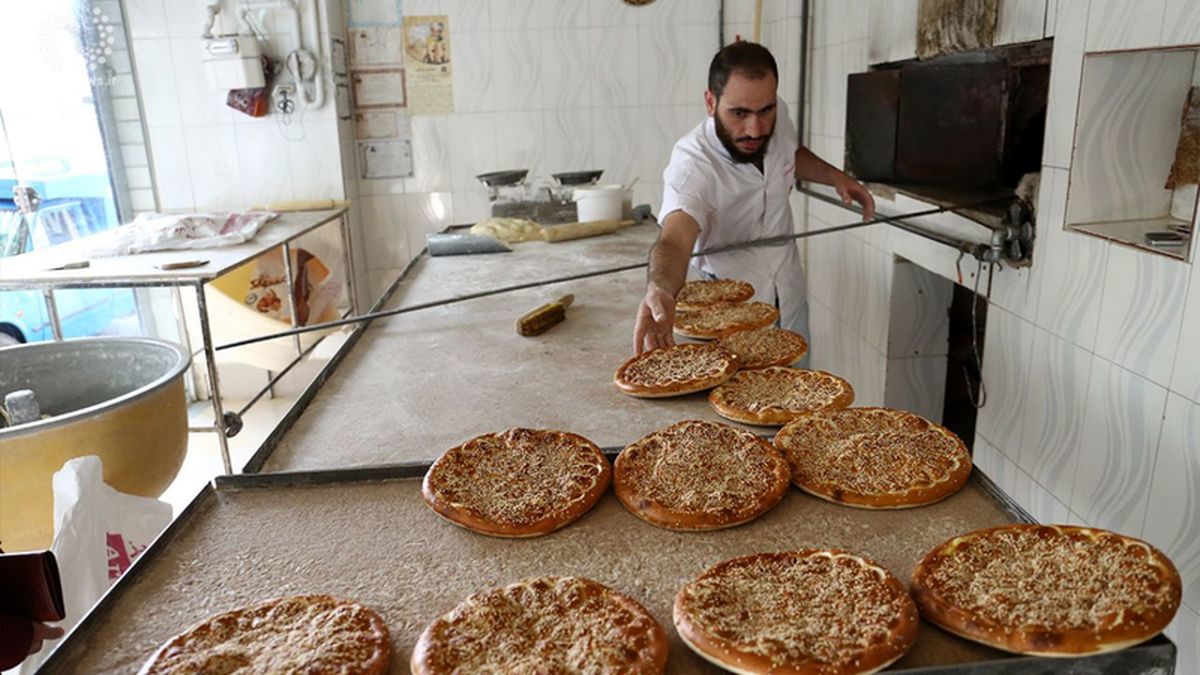
The Iranian government is seeking to clarify rumors surrounding bread price increases.
“The needy and low-income groups of the society can get the full advantage of these subsidies.”
Official Iranian media is trying to justify new domestic subsidies put in place to counter Iran’s worsening economy. Iran is very sensitive to bread prices and like many other countries in the Middle East, is highly dependent on wheat and grain imports. Even before Russia’s invasion of Ukraine, Iranian officials had said that wheat imports were on the rise. On 7 May, the head of Iran’s Flour Producers Association said that Iran needed to import 20 million tons of wheat and that its reliance on the foreign grain supply, especially Russia’s, had never been so great. While the Iranian government blames the domestic grain production shortfall on drought, Iranians say a greater responsibility may be the result of corruption and watershed mismanagement as the economic wing of the Islamic Revolutionary Guard Corps wins contracts to build unnecessary dams regardless of whether such diversions prevent water flow to agricultural land.
The excerpted article from Iranian new outlet Fars News Agency seeks to correct misinformation circulating online and explain new subsidy policies. While Iranians worry that bread rations are on the horizon, the article suggests that new requirements equip the bakeries to accept bank debit cards. These, in turn, will automatically apply government subsidy payments based on income level. As suggested in the article, the government designed the scheme to counter illegal profiteering among bakeries. While Iranian subsidy schemes aim to ameliorate the risks of social unrest, their expense to government coffers often involves trade-offs. Shifting funding to grain subsidies has led to a decrease of support for chicken feed that in turn has led to greater expense and scarcity of chicken and eggs. The impact of this was apparent during Iranian Nowruz (New Year) festivities. As households were unable to accommodate the hospitality toward guests traditional during the period, Iranians explained that many residents of Tehran and other major cities decided instead to travel to the countryside where they might be relieved of the expense of feeding guests. Iranians recognize the erosion of Nowruz hospitality as an unwanted sacrifice that illustrates just how dire their economic situation has become.
Source:
“Az Shaye’ah ta Vaghe’yat Yaraneh-e Nan (Bread Subsidy Cards: From Rumor to Reality),” Fars News Agency (official media outlet closely associated with Iran’s military and security services), 7 May 2022. https://www.farsnews.ir/news/14010217000044
Bread Subsidy Cards: From Rumor to Reality
From rumor to reality: The 13th government [the Raisi administration] has undertaken what the Rouhani administration should have done years ago, and out on the agenda removal of 4,200 tomans [subsidy]. The government intends to implement key economy reforms for the sake of justice and to eliminate the profits of certain people. Government officials have said they are ready to sacrifice their own reputations for this. One of the important issues in this regard is price liberalization and the direct payment of bread subsidies to the people. In this regard, some people published a photoshopped and false images of a “bread subsidy card.” The Central Bank’s deputy for New Technologies said in this regard: “The infrastructure is designed so that people can claim their subsidy at the same time by using a card while buying basic goods. In this way, the purchase cost is deducted from both the individual subsidy and the bank account.” This will subsidize only the flour used by the people, not all the flour of the bakeries. There is no need for a new card as purchases are made with the current bankcard of individuals. The price and manner of buying bread does not change….
For other basic goods, a monthly amount is provided to compensate for the increase in prices. The higher income groups pay a part of the cost of providing these goods, but the needy and low-income groups of the society can get the full advantage of these subsidies….
Image Information:
Image: The Iranian government is seeking to clarify rumors surrounding bread price increases
Source: Jam-e Jam Online, https://jamejamonline.ir/files/fa/news/1401/2/16/599366_453.jpg
Attribution: none
